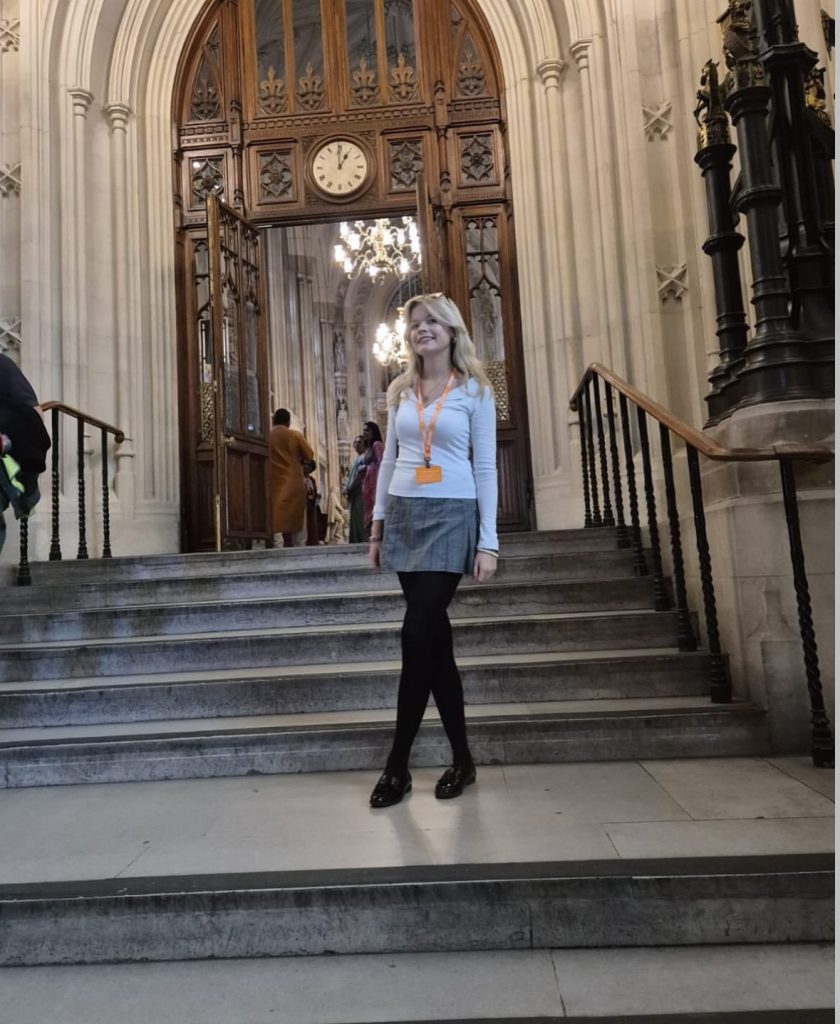The rise of social media has reshaped childhood, but a growing body of evidence reveals a devastating cost to young people’s mental health.
Research, personal accounts, and expert insights converge on the troubling reality of excessive social media use driving a surge in anxiety, depression, eating disorders, and other emotional challenges among children and teenagers.
A 2018 Parliamentary Committee report first sounded the alarm, linking a decade-long rise in children’s mental health issues to the proliferation of social media, and Vanessa Stock is just one of those whose life was nearly destroyed by social media.
The 23-year-old university student became addicted to TikTok as a teenager, spending hours daily on the platform and during the Covid-19 lockdown, algorithms bombarded her with calorie-counting and fitness trends.
Stock said: “It was relentless – every video pushed me to be thinner, fitter, better.
“I was isolated, and TikTok became my reality. It felt like the app was controlling my mind.”
This obsession spiralled into a life-threatening eating disorder, leading to two hospitalisations and being sectioned under mental health services.
Stock said: “I was starving myself to death because of what I saw online.
“I almost died because of TikTok.”
According to Ofcom’s 2024 report, children who spend more than three hours a day on social media are more than twice as likely to exhibit signs of poor mental health compared to non-users.
Among heavy users, 27% reported symptoms of anxiety, low mood or emotional distress – a stark contrast with the 12% reported by those who do not use social media at all.
Girls were found to be particularly affected, averaging 3.8 hours of daily screen time compared to 2.6 hours among boys.
This gender difference aligns with the World Health Organisation’s 2024 data showing 13% of adolescent girls exhibit problematic social media behaviour, compared with 9% of boys.
This disparity is often linked to appearance-based comparisons and the heightened social pressures girls face online.
The World Health Organisation’s 2024 report adds further weight, noting 11% of adolescents exhibit “problematic social media behaviour,” struggling to curb their use despite clear harm.
The Education Policy Institute (EPI) found while moderate social media use can be benign or even beneficial, excessive passive scrolling and toxic interactions inflict the most damage.
The Child Mind Institute explained how platforms built on likes, shares, and relentless feedback loops cultivate feelings of inadequacy and addiction-like behaviours, especially in emotionally developing children.
A December 2024 Forbes article called out tech companies for deploying manipulative tactics, such as infinite scrolling and algorithmic content, to keep users, including children, hooked, often at the expense of their wellbeing.
Sleep disruption compounds the issue and Office Practicum reported heavy screen use before bed disrupts sleep patterns, leading to fatigue, poor focus, and emotional instability.
With many children glued to phones late into the night, this sleep deprivation may be a key factor in the rising tide of mental health challenges in schools.
Now in recovery from her own social media addiction, Stock is a fierce advocate for change.
She said: “These platforms don’t care if you’re a kid or if you’re falling apart. They just want your attention.
“There need to be strict regulations to stop algorithms from targeting vulnerable young people with harmful content.
“No one should have to fight for their life because of an app.”
Ellie Hodges, a 16-year-old Year 12 student at Haileybury School with a growing social media presence, acknowledged the pervasive impact of social media on her peers and younger children.

Hodges said: “I think social media really does affect children and teenagers.
“It affects children because it stunts their development, they lack social skills if they have an iPad stuck in their face instead of communicating with adults.
“Young children are not learning those social skills which can later affect their mental health.
“For teenagers, social media can become addicting, it can promote unrealistic beauty standards – especially for young girls.
“They are being exposed to harmful content online.”
Hodges also highlighted the toxic culture fostered by influencers and online interactions.
She said: “Social media pushes the idea of influencers, which is really unhealthy.
“Social media can lead to high levels of anxiety and depression.
“We’ve got online bullying, hate comments, you’ve got all of that side to it which is very nasty because people say all of this behind a screen, they’re not to your face.
“Anxiety can also come from doom-scrolling, and this can lead to depression as well, as people get addicted from scrolling endlessly on their phone.”
NHS psychological wellbeing practitioner Sam Collett, 27, identified body image issues, attention deficit disorders, and pornography exposure as key psychological effects of prolonged social media use.
Collett said: “Pornography, which is actively being promoted on social media platforms, can dysregulate the dopamine pathway, leading to depression, anxiety, and low mood.
“For some kids, social media can be the biggest factor shaping their mental health, especially if they’re addicted.
“Parental oversight can make a difference, but without it, social media dominates their lives.
“Children are exposed to traumatic content – pornography, violence, extremist ideologies – that they’re too young to process.
“Aggressive algorithms feed shocking material because it exploits our morbid curiosity, driving engagement but also aggression, poor social skills, and mental health disorders.”

He added that online time erodes real-world interactions, weakening emotional resilience.
Social media’s role in anxiety and depression is particularly acute.
Collett said: “Platforms thrive on comparison – children see AI-enhanced images and curated lives that aren’t real, breeding insecurity.
“Young girls posting selfies are bombarded with pressure to look perfect, often comparing themselves to unattainable ideals.”
In treating affected children, Collett advocates for education and cognitive behavioural therapy (CBT).
He listed withdrawal, low mood, anxiety, insomnia, and fixation on appearance as warning signs.
Collett said: “We need to educate parents to prevent issues early.
“CBT encourages real-world socialising, exercise, sleep, and challenging negative beliefs shaped online.”
“If a child is always on their phone, especially at meals or bedtime, or talks about cosmetic surgery, that’s a red flag.
“Parents should talk empathetically, listen, and consider parental controls or blocking harmful platforms.”
Hodges echoed the need for proactive measures, particularly for younger children and teenagers.
She also pointed to the pressure to project a flawless image online.
She said: “If you have young children, don’t shove an iPad in their face – let them learn, let them develop.
“When they’re a teenager, make sure they’re aware of the dangers of social media, making sure that they follow good role models, people who they can admire.
“I would definitely say that the pressure of having a perfect life is there, you’re always comparing yourself to other people on social media.”
Hodges questioned the accountability of social media companies, too.
She said: “I don’t think social media companies do enough, but also, what can they do?
“This is the problem with the internet, the problem with influencers is that they get brand deals and then these brands promote them, which has a knock-on effect.”
Despite the risks, Collett underlined social media can have benefits.
However, he advised parents to set time limits, promote offline activities, and discuss online content to foster critical thinking.
Collett said: “In moderation, it helps kids connect and express themselves, especially those who struggle socially.
“Encourage face-to-face activities like sports or clubs, model healthy screen habits and build their confidence in real-world connections gradually.”
Stock, Hodges, and Collett all called for stricter regulations.
Hodges said: “There should be stricter controls from social media companies, especially for TikTok.”
Collett proposed a social media ban for under-18s, citing the profound impact on developing brains.
He said: “We need rigorous age verification, like passport ID, to protect kids from this unprecedented harm.”
Stock is in no doubt regulation is needed sooner rather than later to prevent others from suffering the same harrowing journey.
She said: “Kids shouldn’t be on these platforms – the damage is too real.
“I lost years of my life to an algorithm that didn’t care if I lived or died.
“How many more kids have to suffer before something changes?”
Feature image credit: Vanessa Stock





